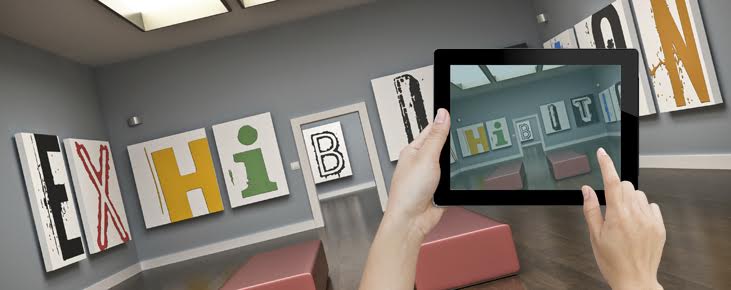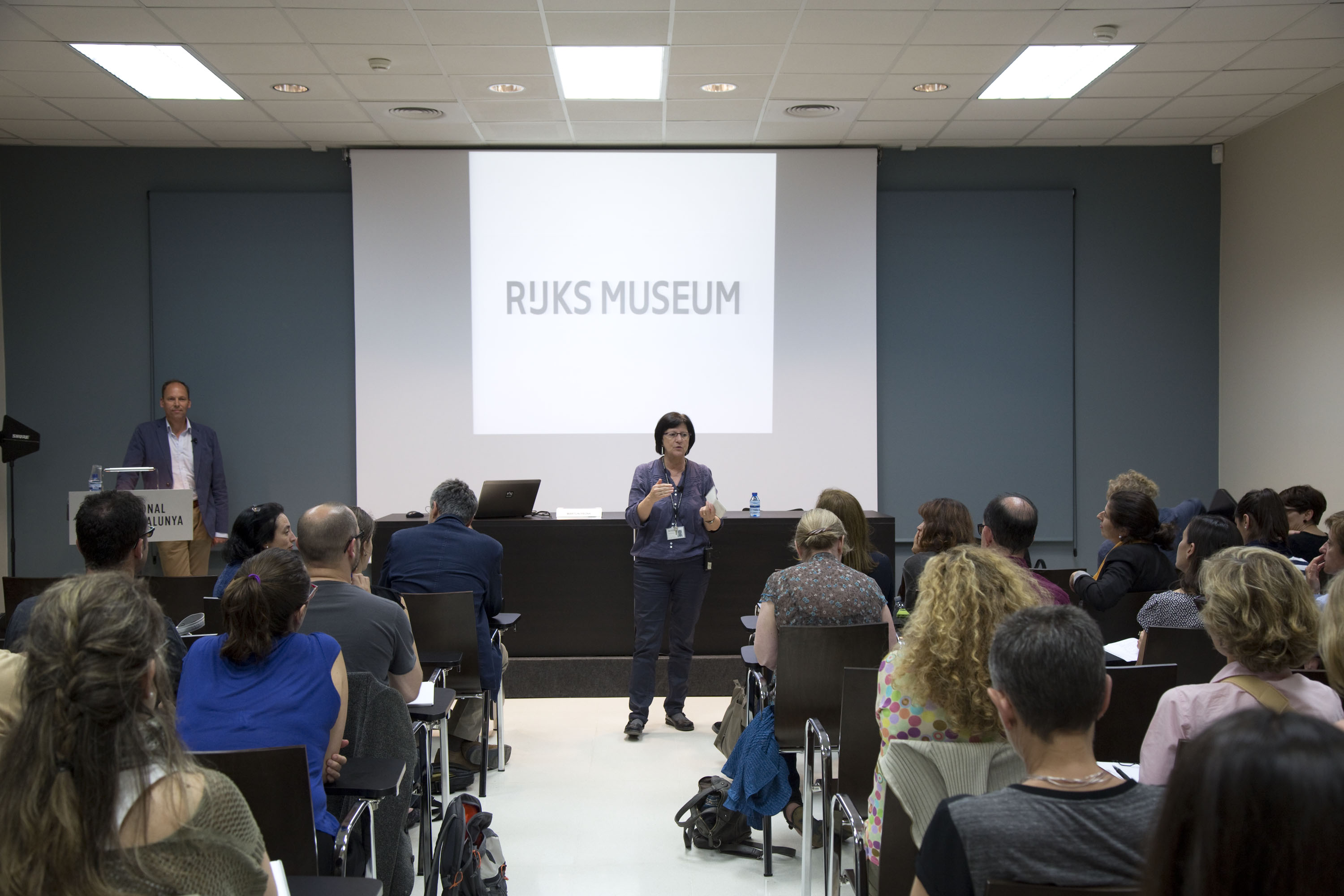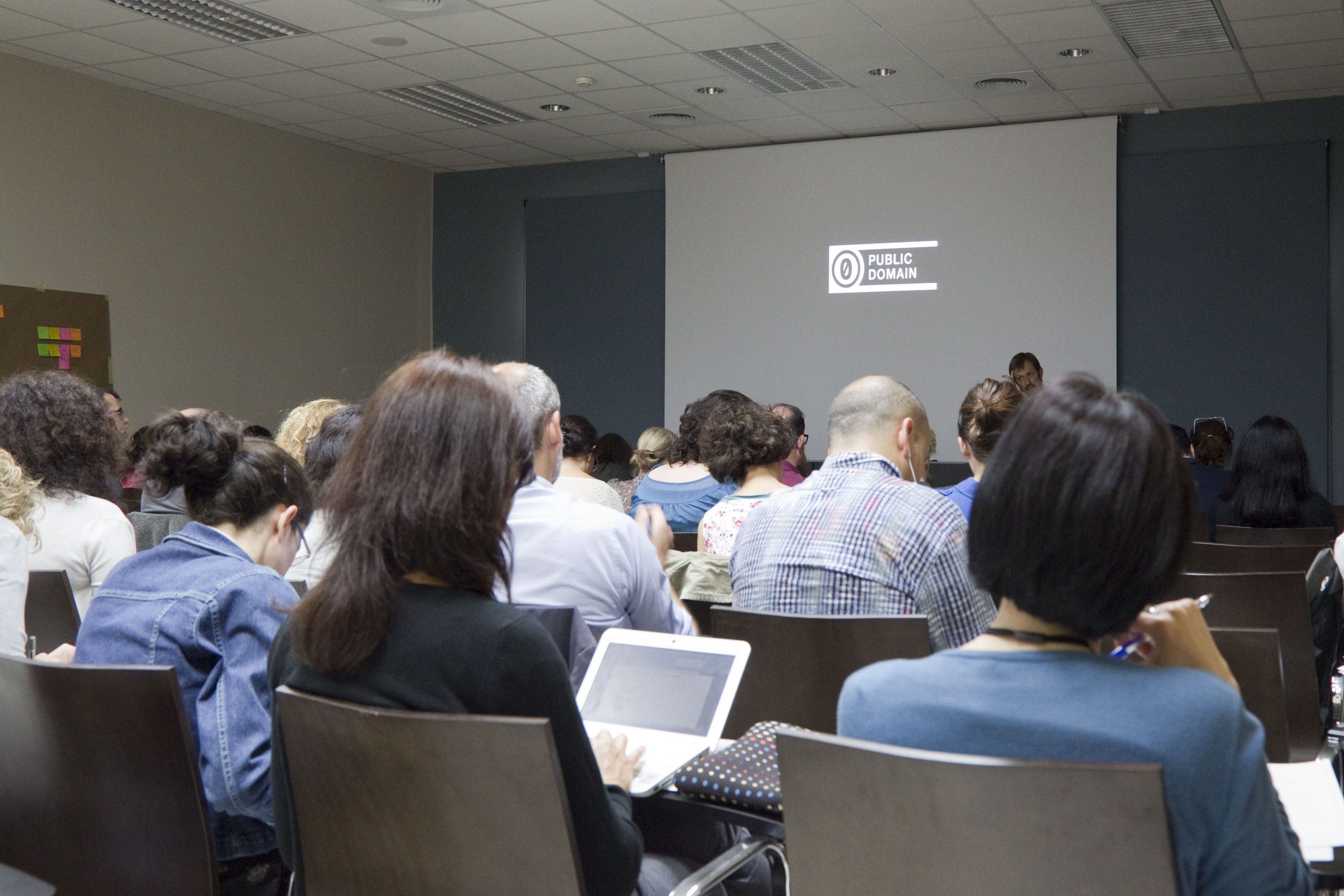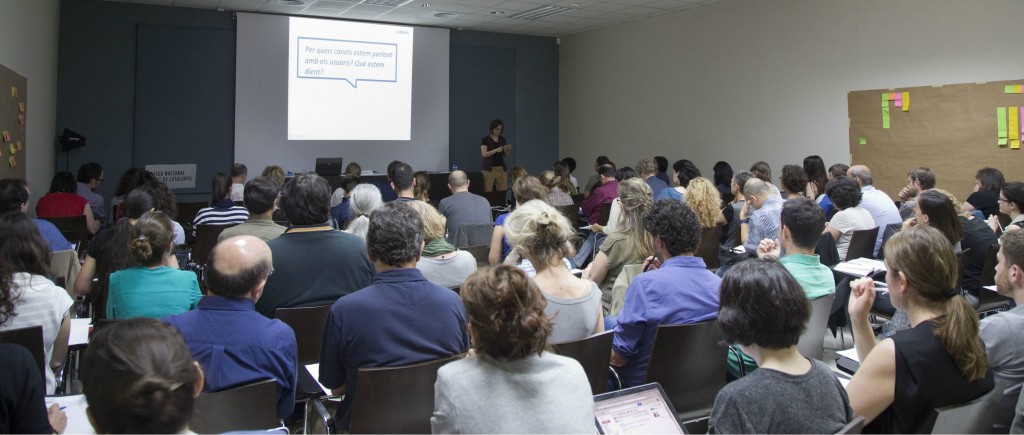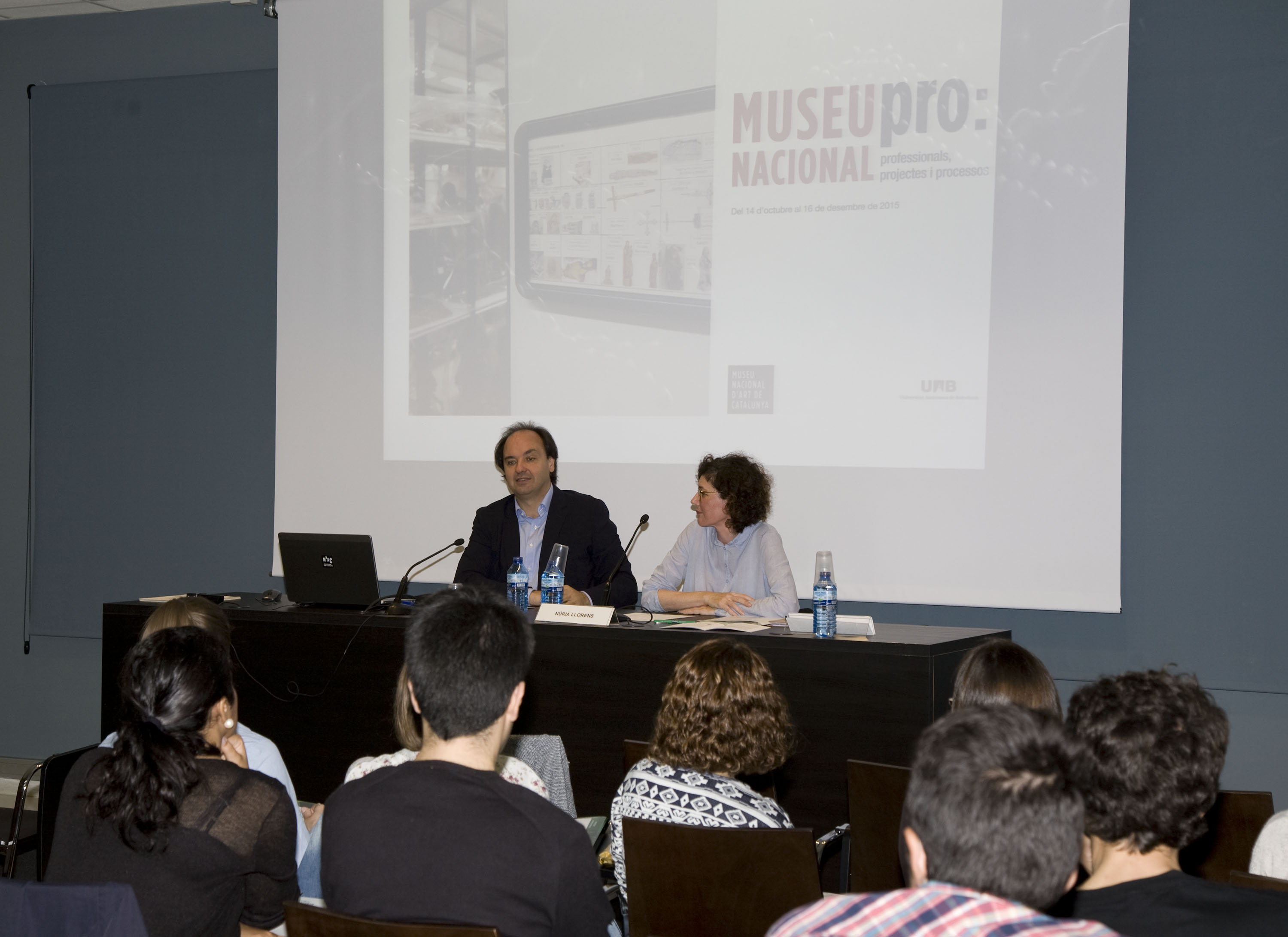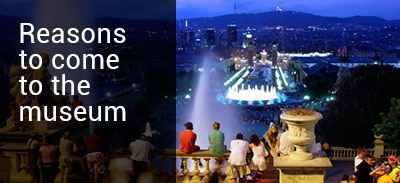Conxa Rodà
Nowadays training is an essential element in organisations. The changing environment that we are immersed in, digital acceleration, new ways of working and new social uses of communication and cultural consumption all mean that to continue being trained is now more necessary than ever.
In the museum we are convinced that the training aspect should also form part of our everyday work. Collaborating with the university is a winning formula for the training of professionals. For the past five years we have led the Postgraduate in Museum Management, jointly organised with the Continuous Training Institute of the UPF (Pompeu Fabra University). This year we will be starting out on a new training adventure, this time with the UOC (the Open University of Catalonia): a new online course of Digital Strategy for Cultural Organisations. We will be putting together the expertise of the museum in digital projects with the expertise of the UOC in elearning, that is to say, online learning.
How it all began
The embryo of the course has been the Seminar of Digital Strategy that we held last year in the museum, for the professionals of the Network of Art Museums of Catalonia. The rapid selling out of the 100 places, added to the comments on the debates and the final feedback forms, highlighted the need to provide specific training in this field.
The digital explosion has been relatively recent and the necessary digital skills cannot always be found within the institutions. Furthermore, in many organisations, the training offer for the teams isn’t really focused on providing the staff with the resources and skills that the new digital panorama requires.
Learning by doing
As there is nothing better than doing things to learn −learning by doing−, the course is oriented, in addition to the acquisition of knowledge and of the best practices of cultural centres from all over the world, towards the elaboration of a digital strategy project applied to a museum or cultural centre. That is to say, that the people registered will leave the course with a project under their arm ready to be implemented in their centre. The aim of the course is to provide an integral and transversal version of the steps and procedures to follow in relation to the use and applicability of the digital technology in cultural organisations.
To do so, we have structured the course in four modules
- Digital strategy. This module will be made up of two aspects: the current situation will be analysed as well as the needs of the organization in which each participant should decide to do the project; and furthermore an approach will be made – theoretical and illustrated with best practices, to the characteristics, the goals and the components of a digital strategy of an organization.
- Content strategy. In this block we will take an in-depth look at a series of necessary guidelines for creating, publishing, and maintaining useful contents in an efficient way, and we will propose the planning and governance of contents in the organization.
- Digital tools. Work will be done of the most common platforms and tools for establishing a digital strategy and the preferential audience that they are aimed at.
- Evaluation. In this last module, some indicators will be identified for measuring the efficacy of the proposed actions in the project in relation to the goals we want to achieve. If we don’t measure, we don’t know. This aspect is fundamental and often not taught enough or applied in the cultural organisations.
The academic management is shared between the Museu Nacional –myself− and the UOC −Laura Solanilla. The written materials and videos have been specifically elaborated for the course by notable figures from the digital dimension such as Elena Villaespesa, currently analyst of digital media at the Met (Metropolitan Museum of New York) and previously the same function at the Tate of London; Tijana Tasich, digital consultant at Digitelling and previously responsible for digital production at the Tate, and Soledad Gómez, specialist in social networks and author of the blog Mediamusea. The academic tutor who will take care of the course and will be responsible for the dynamization of the virtual classroom with the students is the well-known Clara Merín, consultant in online communication and author of the blog Endecomunicación.
Who can it be interesting for
The course, the equivalent of half a postgrad, is aimed mostly at cultural managers, professionals of museums, professionals of communication, people responsible for museum audiences and cultural organisations, professionals of the digital environment who want to acquire a more strategic vision and, of course, anyone interested in gaining an insight into the applied digital world.
Given that the participants will leave the course with a project applicable to their job, we understand that it would make a lot of sense that the organization where the participant works should help with the costs of registration and/or to concede working time for carrying out the digital strategy project. This could be a motivation for the staff and at the same time a benefit for the centre at a very low cost.
The course will be totally online and the main language will be Spanish so as to facilitate the enrolments from the rest of the state and from Latin America. Most of the weblography can only be found in English. Of course the participants will be able to elaborate their project either in Catalan or Spanish.
You can find all the details in the website of the UOC. And on 29th September we will be giving an onsite informative session at 6.00pm, in the headquarters of the UOC at Av. Tibidabo, 39 of Barcelona.
We’ll be starting on 19th October!
The course will be starting on 19th October and will finish in February. It’s a first step towards future longer editions and a more ambitious programme, depending how well it is received and of the needs and requests that the participants and everybody sends us.
We have been carrying out partnerships with universities for some time now, and it is a formula that has led to excellent results. Very soon we will be resuming the edition of the module Museu Nacional Pro, within the Master’s Degree Course on Analysis and Management of the UAB (Autonomous University of Barcelona). Over a period of a couple of months, many professionals become teachers for a day and the students can get to know first-hand the interiorities of the work that is done in an art museum.
About which topics would you like to find more training offer related to digital and culture?
Co-directora del Curs d'Estratègia Digital_UOC_Museu Nacional d'Art de Catalunya
Co-directora del congrés CIMED de Museos y Estrategias Digitales

